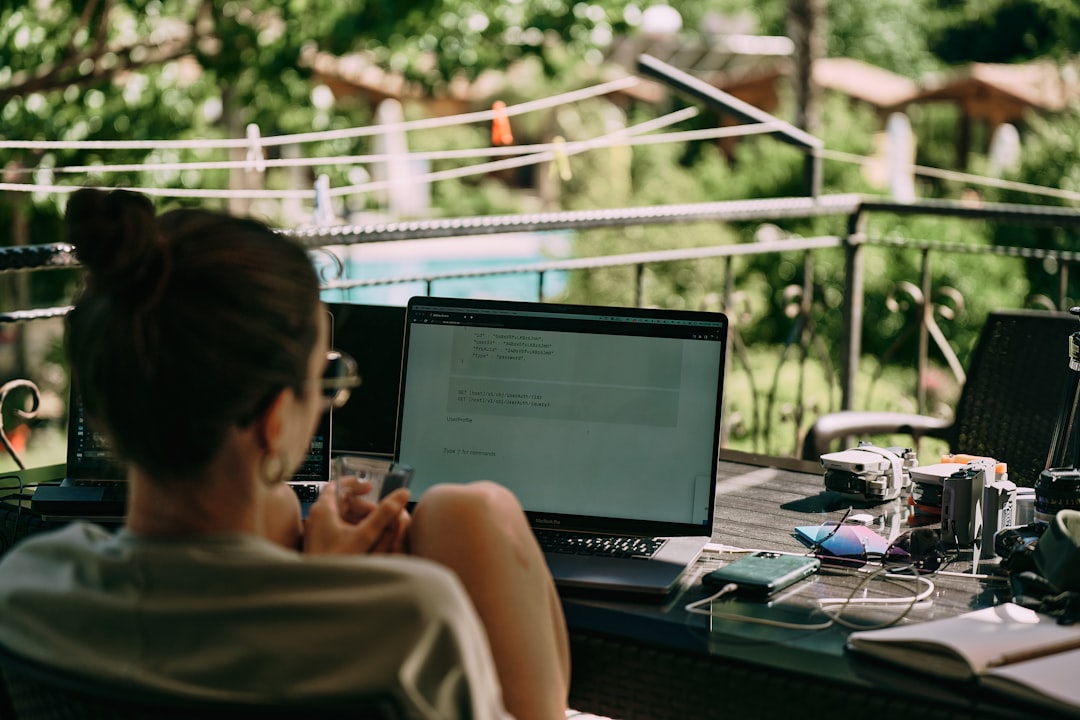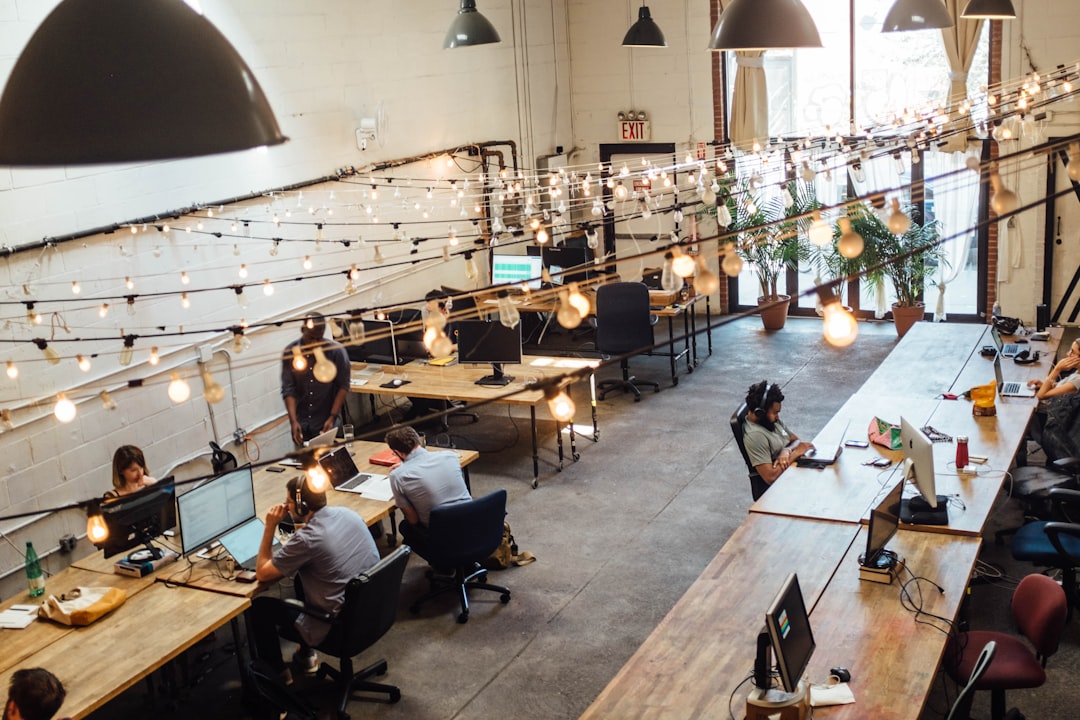Practical Tips For Starting A Nomadic Life

Embrace the Mindset Shift
The first step toward a nomadic life is a change in how you view stability and belonging. Instead of measuring security by a fixed address, focus on the flexibility that comes from being able to move where opportunities and experiences arise. Accept that uncertainty will be a constant companion, but also a source of growth. Practice gratitude for the moments when the road opens up, and develop a habit of planning for multiple outcomes rather than a single, static plan.
Cultivating a minimalist mindset helps too. Ask yourself which possessions truly support your travel goals and which are simply holding you back. Decluttering before you set out creates space—both physical and mental—for the new experiences that await.
Assess Your Financial Foundations
A nomadic lifestyle can be inexpensive, but it also requires a reliable flow of income and a buffer for unexpected costs. Start by calculating your essential monthly expenses: housing (or a travel budget), food, insurance, transportation, and any debt repayments. Compare this figure with your current income streams.
If you are not yet earning remotely, explore freelance platforms, remote‑friendly job boards, or ways to monetize a skill you already possess. Create a dedicated travel fund that covers at least three months of living expenses; this safety net reduces stress when you are on the road.
Track every expense during the first few weeks of travel with a simple spreadsheet or budgeting app. The data will reveal patterns you can adjust—perhaps cooking more often or choosing longer stays in cheaper locations—to keep your finances in balance.
Choose the Right Gear
Good gear is an investment in comfort and efficiency, but over‑packing defeats the purpose of a light, mobile life. Start with a versatile backpack or suitcase that meets airline size limits yet can hold everything you truly need.
Key items to consider:
- A durable, weather‑resistant backpack or rolling suitcase
- A compact, high‑quality sleeping system (travel pillow, lightweight sheet) if you plan to stay in hostels or camp
- Multi‑purpose clothing layers that work in both warm and cool climates
- A reliable power bank and universal travel adapters
- A lightweight laptop or tablet with a protective case
- A set of reusable containers, utensils, and a collapsible water bottle
Test each piece before you leave. If something feels unnecessary or cumbersome during a short trial trip, consider leaving it behind.
Map Out Your First Destination
Instead of randomly hopping from city to city, pick a region that aligns with your interests, budget, and visa requirements. Research the cost of living, internet reliability, safety, and local transportation options.
Use tools like cost‑of‑living calculators, travel forums, and expat blogs to gather realistic expectations. Create a rough itinerary that includes:
- Primary city or town where you will base yourself for the first month
- Nearby side trips that can be done in a weekend
- Potential coworking spaces or cafés with strong Wi‑Fi
- Local markets or supermarkets for affordable groceries
Having a clear starting point reduces decision fatigue and gives you a foothold for building a routine.
Secure Reliable Digital Connectivity
A stable internet connection is often the lifeline of a digital nomad. Before you arrive, identify the best options for staying online:
- Mobile data plans with generous data caps and good coverage in your destination
- Portable Wi‑Fi routers that can accept local SIM cards
- Coworking spaces that offer day passes or membership plans
- Cafés or libraries known for strong Wi‑Fi
Consider purchasing an international SIM card as a backup, but be aware that local carriers usually provide better rates and speeds. Test the speed of any Wi‑Fi venue before committing to a long stay.
Find Accommodation That Fits Your Lifestyle
Accommodation choices range from short‑term rentals and hostels to house‑sitting and long‑term sublets. Each option has trade‑offs in cost, privacy, and flexibility.
For the first month, a mid‑range Airbnb or a well‑reviewed hostel can provide a balance of comfort and community. If you prefer more stability, look for month‑to‑month rentals on platforms that specialize in longer stays.
When evaluating a place, ask yourself:
- Does the space have a dedicated work area?
- Is the internet speed sufficient for your tasks?
- Are there nearby grocery stores and public transport?
- How safe is the neighborhood, especially at night?
Read recent reviews carefully; they often reveal hidden issues that photos cannot show.
Build a Routine That Keeps You Productive
Even without a fixed office, establishing a daily rhythm helps maintain productivity. Start each day with a short planning session: list the tasks you need to accomplish, set realistic time blocks, and schedule breaks.
Incorporate physical activity—whether a morning jog, a yoga session, or a walk around the neighborhood—to boost energy levels. Keep a consistent sleep schedule as much as possible; irregular sleep can quickly erode focus.
Use productivity tools such as task managers, time‑tracking apps, and digital calendars to keep your work visible and organized. The routine does not need to be rigid, but having a structure reduces the temptation to drift into endless sightseeing.
Manage Health and Well‑Being on the Road
Healthcare can be a source of anxiety for travelers. Before you leave, obtain a comprehensive travel insurance policy that covers medical emergencies, hospitalization, and evacuation.
Research the quality of local medical facilities in your destination and note the nearest hospital or urgent care clinic. Keep a digital copy of your insurance card and a list of emergency contacts on your phone.
Maintain a basic health regimen: stay hydrated, eat balanced meals, and get regular exercise. Carry a small first‑aid kit with band‑aids, pain relievers, any prescription medications, and a basic antibiotic ointment.
If you have chronic conditions, bring a copy of your medical records and a letter from your doctor describing your treatment plan.
Navigate Visa and Legal Requirements
Every country has its own rules regarding length of stay, work permissions, and entry requirements. Before you book a flight, verify the visa type you need and the process for obtaining it.
Many digital nomads qualify for tourist visas, but some destinations now offer special “remote work” visas that allow longer stays without a local employer. Research whether you need to apply for a visa in advance or if you can obtain it on arrival.
Keep copies of important documents—passport, visa pages, travel insurance, and any work permits—in both physical and digital formats. A cloud‑based storage solution ensures you can access them even if your devices are lost or stolen.
Keep Your Finances Mobile and Secure
Banking while traveling requires a combination of accessibility and security. Choose a bank that offers fee‑free international withdrawals and a robust mobile app.
Consider a secondary account with a fintech provider that specializes in travel, offering low‑cost currency conversion and virtual debit cards. Use a password manager to store login credentials and enable two‑factor authentication wherever possible.
Avoid using public Wi‑Fi for banking transactions unless you are connected through a trusted VPN. Regularly monitor your statements for unauthorized activity and set up alerts for large transactions.
Leverage Technology to Simplify Travel
A handful of apps can dramatically reduce the friction of nomadic living:
- Flight and train aggregators for finding cheap transportation
- Currency converters that work offline
- Language translation apps for quick communication
- Expense trackers for staying on budget
- Cloud storage for backing up important files
Experiment with a few tools during a short trial trip. The ones that fit naturally into your workflow are the ones you will keep long‑term.
Cultivate Community and Connections
Isolation is a common challenge for nomads. Actively seek out community through coworking spaces, meet‑up groups, and online forums dedicated to digital nomads.
Attend local events, language exchanges, or hobby clubs to meet residents and fellow travelers. Even a brief conversation can lead to useful tips, a shared workspace, or a future travel companion.
If you prefer a more structured environment, consider joining a nomad‑focused retreat or a co‑living house where you live alongside other remote workers for a set period. The shared experience can provide both social support and professional networking.
Practice Sustainable Travel
Living on the move gives you a unique perspective on the environmental impact of your choices. Reduce waste by using reusable containers, avoiding single‑use plastics, and opting for public transportation or cycling when possible.
Choose accommodations that prioritize energy efficiency and support local economies. When traveling between destinations, compare the carbon footprint of flights versus trains or buses and select the greener option when feasible.
Small actions add up; the cumulative effect of mindful decisions contributes to a healthier planet for future travelers.
Prepare for the Unexpected
Even the best‑planned trips encounter hiccups—flight cancellations, lost luggage, sudden illness, or changes in visa policy. Build resilience by:
- Keeping a “go‑bag” with essential items (documents, a change of clothes, basic toiletries) that can be grabbed quickly
- Having a backup plan for accommodation, such as a list of affordable hostels in the area
- Maintaining a small emergency fund separate from your travel budget
- Staying informed about local news and travel advisories
When challenges arise, pause, assess the situation calmly, and adjust your plan rather than reacting impulsively.
Create a Minimalist Digital Workspace
Your laptop or tablet is likely the core tool for earning income while traveling. Keep it organized by limiting the number of applications and files you keep on the device.
Use cloud‑based services for document storage to reduce local clutter and enable easy access from any device. Regularly delete old files, uninstall unused apps, and back up important data to an external drive or secure cloud service.
A clean digital environment reduces distractions and improves performance, especially when you are working in noisy or shared spaces.
Balance Exploration with Work
It can be tempting to spend every free moment sightseeing, but maintaining a healthy work‑life balance is essential for long‑term success. Allocate specific blocks of time for exploration—perhaps a few hours in the evening or a full day on the weekend.
During work periods, minimize interruptions by using noise‑cancelling headphones, setting “do not disturb” status on communication tools, and communicating your availability to clients or teammates.
By honoring both work commitments and the desire to explore, you avoid burnout and keep your income stream stable.
Set Up a Home Base for Mail and Packages
Even without a permanent residence, you will need a reliable address for receiving mail, packages, and official documents. Options include:
- Virtual mailbox services that scan and forward mail electronically
- Mail‑forwarding services that provide a physical address and ship items to you on demand
- A trusted friend or family member’s address with permission to receive parcels
Choose a solution that aligns with the length of your stay and the volume of mail you expect. Having a stable mailing address also simplifies tax filing and banking processes.
Evaluate and Adjust Your Lifestyle Regularly
Nomadic living is an evolving experiment. Schedule periodic reviews—monthly or quarterly—to assess how well your current setup aligns with your goals.
Ask yourself:
- Am I meeting my income targets?
- Do I feel healthy and energized?
- Is my accommodation comfortable and affordable?
- Have I built meaningful connections?
Based on the answers, make incremental adjustments rather than drastic overhauls. Continuous refinement ensures that the nomadic lifestyle remains rewarding and sustainable.
First‑Month Checklist
To bring the advice together, here is a concise checklist to guide your launch:
- Define your core values and motivations for a nomadic life
- Create a detailed budget and set up a travel fund
- Choose and test essential gear; pack only what you need
- Select a first destination and research visa, cost of living, and connectivity
- Secure travel insurance and a health plan that covers international care
- Arrange a short‑term accommodation with reliable Wi‑Fi
- Set up a mobile data plan or local SIM card for internet access
- Establish a daily routine that balances work and exploration
- Join at least one online community or local meet‑up in your destination
- Keep copies of important documents in a secure cloud folder
Cross each item off as you complete it, and you will start your nomadic adventure with confidence.
Common Pitfalls and How to Avoid Them
- Over‑packing – Resist the urge to bring everything you think you might need. Test your gear on a short trip first.
- Underestimating costs – Track expenses from day one and adjust your budget as you learn the true cost of living in each location.
- Ignoring visa rules – Always double‑check entry requirements and set reminders for renewal dates.
- Relying on a single income stream – Diversify your earnings to cushion against client loss or market fluctuations.
- Neglecting health – Schedule regular exercise, maintain a balanced diet, and keep up with medical check‑ups remotely if possible.
- Isolation – Actively seek community through coworking spaces, events, and online groups.
By anticipating these challenges, you can create proactive solutions that keep your journey smooth.
Final Thoughts
Starting a nomadic life is both an exciting adventure and a disciplined undertaking. It demands a clear understanding of finances, legalities, health, and logistics, as well as a willingness to adapt and learn continuously.
The practical tips outlined above provide a roadmap that transforms uncertainty into actionable steps. Embrace the freedom to explore new cultures, meet diverse people, and shape a work style that aligns with your personal values. With careful preparation, a resilient mindset, and an ongoing commitment to refinement, you can build a sustainable nomadic lifestyle that enriches both your professional and personal life.
Random Posts

Ultimate Checklist for Choosing a European Nomad Destination
Use our ultimate checklist to pick the ideal European nomad city by comparing cost, visa rules, internet speed, lifestyle vibe, safety and community for a smart, hassle free move.
5 days ago

Ultimate Nomad Handbook for Beginners
Turn wanderlust into reality with a clear step by step roadmap. Learn the nomad mindset, essential tools, and avoid common pitfalls so you can launch and sustain a life of freedom on the move.
1 month ago

Why Flexible Work Environments Are the Key to Remote Success
Flexible work environments turn remote teams into high-performers by adapting to personal needs, project demands and technology, while coworking hubs provide the connectivity and community essential for success.
1 week ago

Unlocking the Nomad Lifestyle With Curated Guides and Practical Resources
Discover the essential guides, apps, books and podcasts that turn nomadic chaos into confidence, helping you stay connected, productive and balanced wherever you roam.
2 months ago

How to Choose the Perfect City for Your Nomadic Lifestyle
Learn how to pick the ideal city for your nomadic life by defining your priorities, checking internet, cost, safety and culture, and using a simple step by step checklist to land in a place that fuels work and adventure.
3 weeks ago
Latest Posts

Essential Software Every Remote Professional Should Use
Master remote work with essential tools: instant messaging like Slack, high definition video calls such as Zoom, and asynchronous voice apps. Streamline communication, stay connected and boost productivity.
1 day ago

Mastering Remote Work Productivity for Digital Nomads and Freelancers
Learn proven habits, tools, and tactics that help digital nomads and freelancers stay focused, deliver quality work, and maintain a sustainable lifestyle while traveling the world.
1 day ago

Tech‑Friendly European Towns Perfect for Remote Living
Discover Europe’s best small towns where fast internet, affordable living and vibrant tech communities let you work remotely while soaking up historic charm, lakeside views or mountain air.
1 day ago